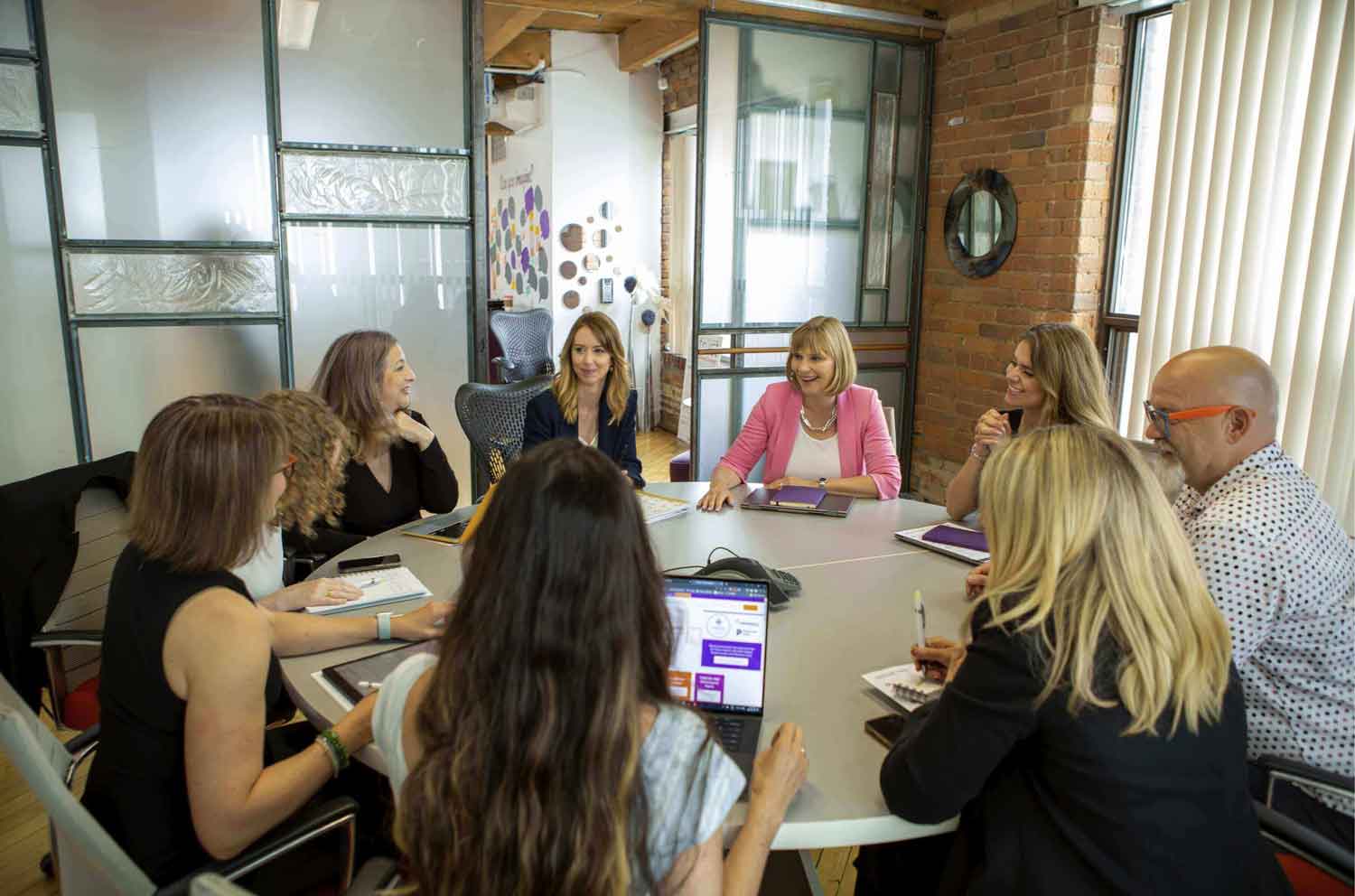I am, and hope to always be, a leader-in-learning.
I work hard every day to be open to new opportunities to grow and to remember that no matter how much I know, I could never possibly hope to know it all (despite my behaviour to the contrary sometimes )
Some of the most charismatic and accomplished leaders I have worked with, continue to act like they are on their way up, rather than having made it. Some are CEOs of Global organizations and yet they remain humble and open to what they can learn from others. They are the first to admit when they don’t know something, and the first to invite others to offer suggestions. They don’t ask questions to demonstrate how clever they are or to catch people out for having missed something. They are genuinely curious about how other people think and in exploring alternatives to their own perspective.It is really important for true leaders to maintain this spirit of leadership as learning, creating an environment ripe for innovation and engagement.
But some people, once they have achieved a certain level of career success, start inadvertently closing themselves off to new ideas and fresh thinking.
They stop trying new things, stop investing in development, stop spending time on ‘trying’ things out, stop asking stupid questions…
This is an understandable and natural consequence of becoming better and more sophisticated in what you do. But it can also be a fast way to becoming obsolete.
Indicators that you may be resistant to learning:
- You like the plug and go features of that new piece of software that IT just rolled out, but you don’t have time for the advanced training. As long as the old shortcuts work, it’s all good
- The report that you created in 2009 continues to be an excellent template for your client work
- You wish the business administration would stop coming up with new processes and procedures to follow
- When new projects and ideas are discussed, you can easily recall when they have been tried before and you are sceptical that they will work this time
- The networking events you attend are filled with people from a similar education and professional background
- Your friends are the same friends you have known for the last 10 years
- Your reading list is dominated by genres and publications that you know you like
- You have largely ignored social media platforms such as Twitter and Facebook as not relevant for business life – after all, there’s no measureable ROI from social media right?
- When new people join your organization, you patiently school them on the culture and how things are done, to help them integrate…
Why does this happen?
Early in our career, we knew there was a ton of stuff we didn’t know.
We were consciously incompetent, and there was absolutely no risk to admitting it. Always ready to volunteer for a new project and not afraid to ask ‘dumb’ questions.
But as you progress further in your career, and you begin to get promoted to realms of ever increasing seniority, it is harder and harder to maintain that inquisitive edge. Right around the time your career hits the murky middle, you run the risk of being afraid to fail.
What you know can hold you back from being open to what you don’t know. Leadership and other senior roles carry a baggage load of expectations and beliefs – yours and other peoples – which can create a barrier to learning and change. Worse still, the things you did to become successful can start to edge towards complacency.
Think about driving for a moment. Something that many of us do on a daily basis while barely thinking about what we are doing and how we are doing it. When we are first learning to drive, our conscious incompetence is a good thing. It teaches us patience and humility. We are so focused on learning we may even have to have the window closed and the radio off to allow us to concentrate. Then gradually we become increasingly confident, until we no longer have to think about the collection of activities involved. That is when driving can become complacent and dangerous.
Similarly, becoming a leader in a state of unconscious competence can be career suicide.
How can you remain immune to this natural progression?
There are many examples where, in our private lives, we try new things and remain open to new experiences. We learn to play music, travel, try new foods. We need to remember to take this openness and willingness to experiment back into the workplace on a daily basis. Create immunity by purposefully placing yourself in situations where you are NOT the expert and where you are forced to rely on someone else for direction and insights. Force yourself back into a state of conscious incompetence.
A few years ago I decided to take up speed skating (or speed falling as my husband affectionately called my attempts to skate).
My son had been skating competitively for a couple of years and I decided it was time to get out of the stands and have a go. Bearing in mind that I grew up in England, where strapping on a pair of skates is at best an annual event, I was consciously placing myself in a very precarious position where I knew nothing about the technicalities of skating (finding my edges was a revelation !). Being a typical A type personality, having the other beginners (who were mostly 20 years younger than me) literally skating rings around me was disconcerting but also liberating. I was not the best. I was not the fastest. Heck, I could barely stand upright for the first few weeks. But I was wide open to learning.
I have had similar experiences with learning to play the piano from scratch as an adult beginner, or taking up road-cycling (a new exploit). I consciously translate the essence of these situations to my work, where I freely admit the areas where I am less than comfortable. I ask members of my team for their ideas and their approaches to doing things I have sometimes been doing for years. I ask for additional ideas and methods even in areas where I feel confident. I never fail to be amazed by the ingenuity and proficiency of others.
- What do you do to stay open to the ideas and different approaches presented by the people around you?
- How does something you do in your personal life translate to making you a better leader at work?
I’d love to hear your experiences.
This post was inspired by an interview with Steve Cunningham – president and founder of curated learning tool Readitfor.me and CEO of Polar Unlimited Digital Marketing. Click here to listen to the interview on the Read it for me Blog. Thanks to Steve for a great conversation…
[fancy_box]Guest post courtesy of Executive Roundtable Member, Gabriella O’Rourke. Gaby is Director of Business Development at WeirFoulds LLP and is a consummate networker and connector.[/fancy_box]



